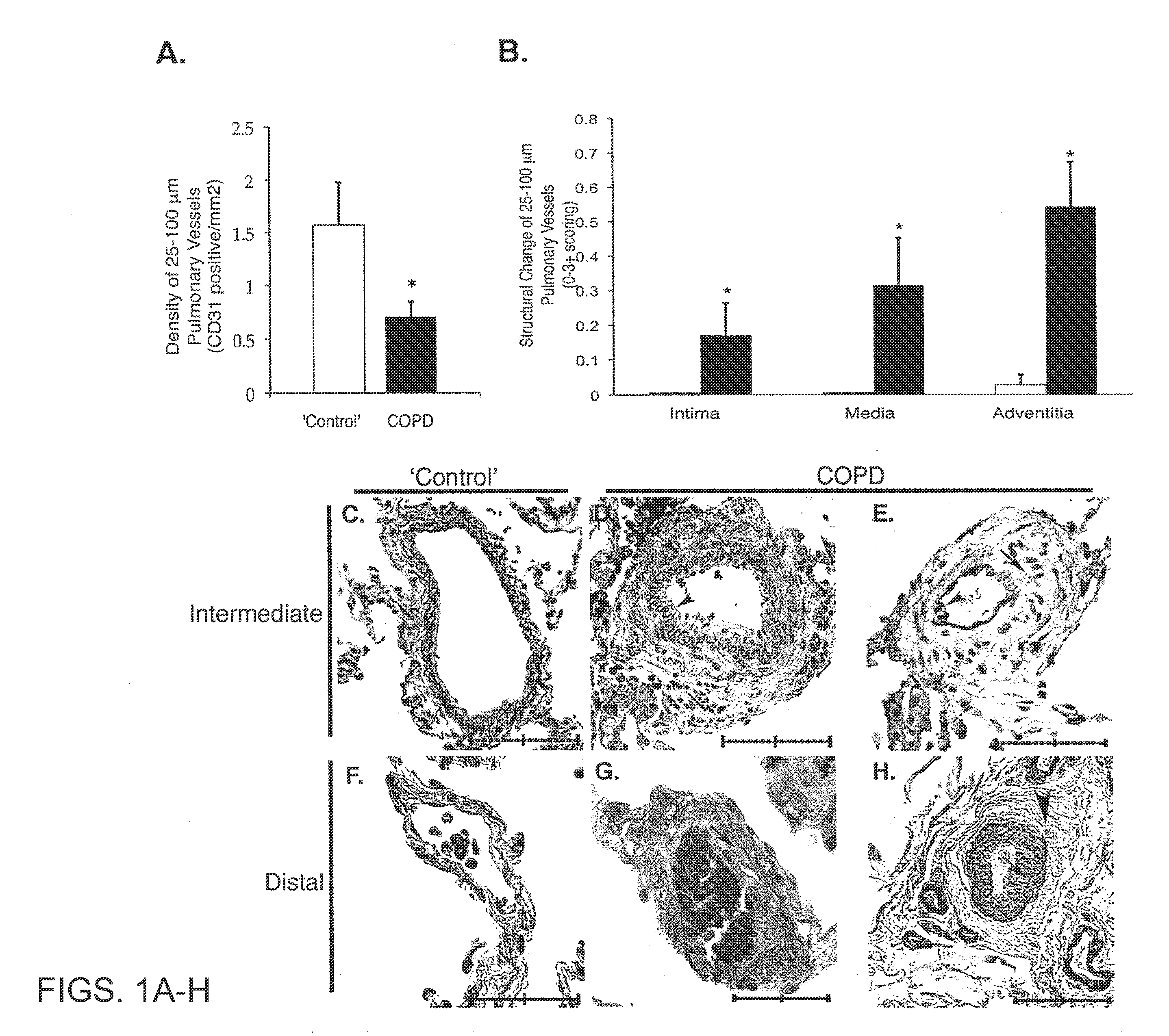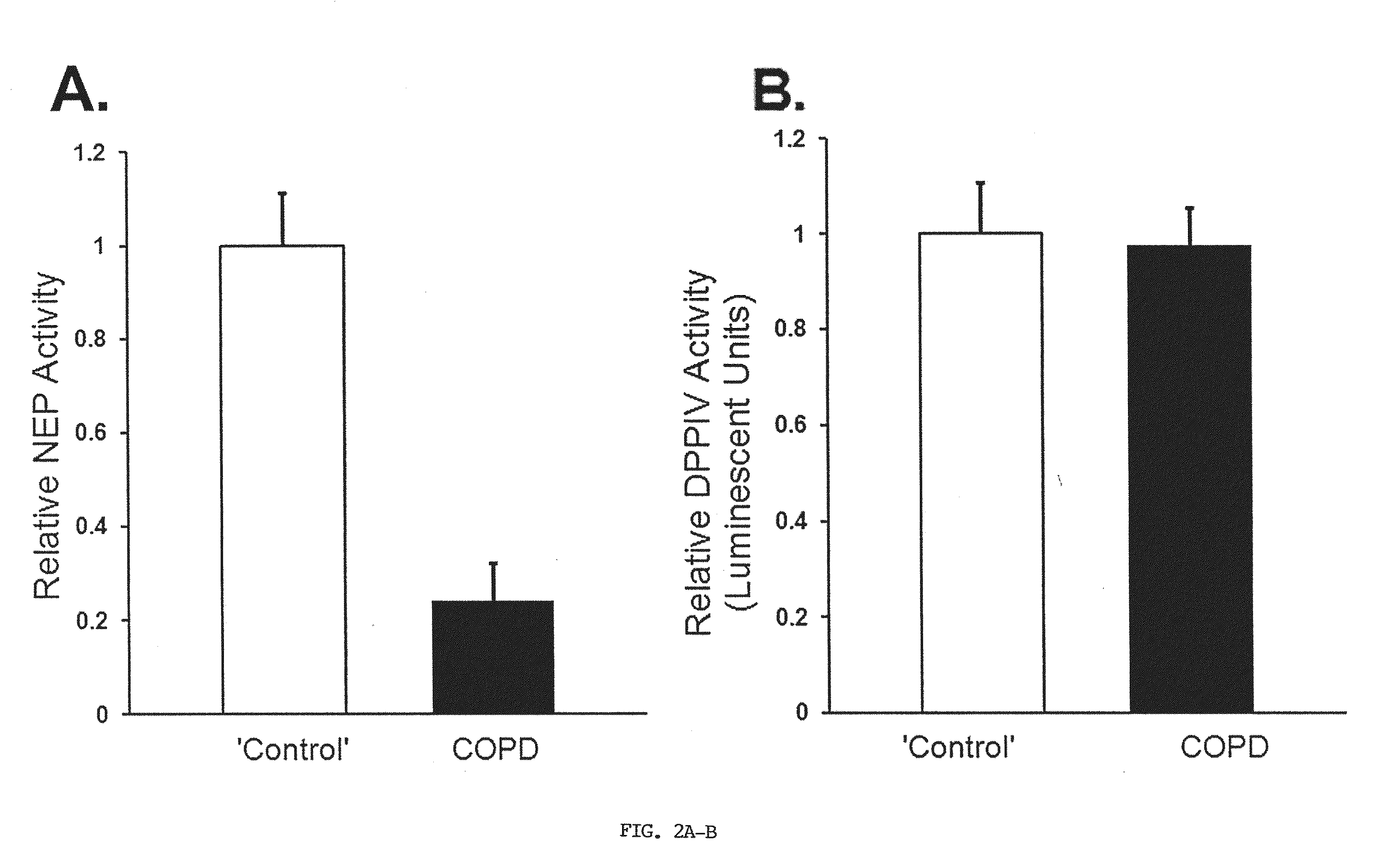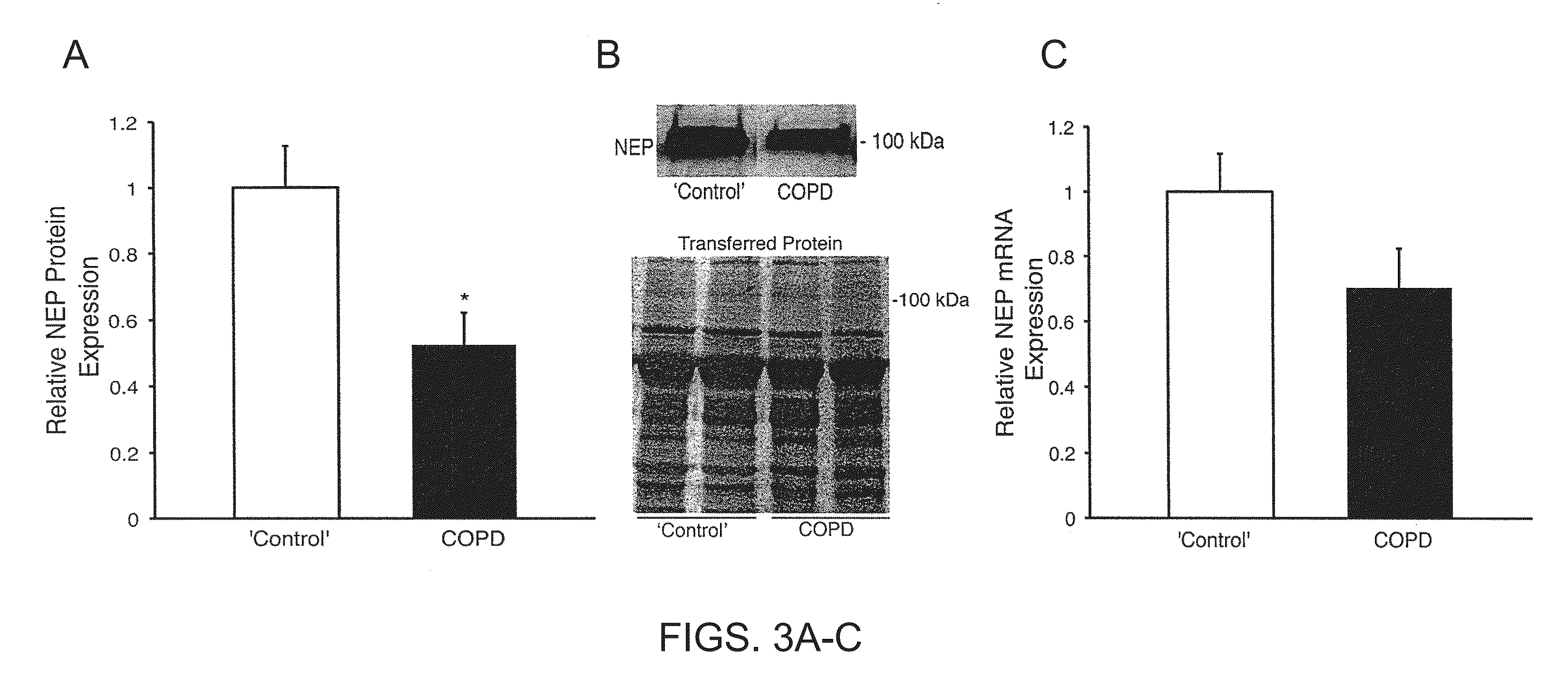Treatment of pulmonary vascular remodeling with neprilysin
a pulmonary vascular remodeling and neprilysin technology, applied in the field of neprilysin, can solve the problems that the role of nep in human pulmonary vascular remodeling, complicating chronic lung disease, has not been investigated, and achieves the effect of increasing the expression of neprilysin and increasing the expression of detectable markers
- Summary
- Abstract
- Description
- Claims
- Application Information
AI Technical Summary
Benefits of technology
Problems solved by technology
Method used
Image
Examples
example 1
Materials & Methods
[0287]Human Lung Tissue.
[0288]‘Control’ and COPD (FEV1% of predicted=>80 and <30, respectively) frozen lungs and slides were from the UC Denver Colo. PD Center (early samples), NIH Lung Tissue Research Consortium (LTRC; world-wide-web at ltrcpublic.com; Tissue Core Director, Dr. C. Cool), or ILD Program, National Jewish Health, Denver (NJH). Sample processing conformed to LTRC guidelines. Samples frozen in RNAlater® (Ambion) were from the LTRC and NJH. Sections were reviewed by a lung pathologist, Dr. C. Cool, to verify designations. COMIRB exemption #07-0791.
[0289]Immunohistochemistry.
[0290]‘Control’ or COPD sections (4 μm), were fixed in 10% formalin and embedded in paraffin at the LTRC, UCD or NJH sites, as per LTRC guidelines; because the LTRC Tissue Core is located at UCD, local samples were also handled in the same way. Staining was performed equivalently with all slides (Dempsey et al., 2009), with anti-human NEP (56C6, Fitzgerald, 1:100, following prelimin...
example 2
Results
[0326]Human Lung Tissue.
[0327]‘Control’ lung tissue from tissue donors and lung lobectomies / wedge resections, was from the UC Denver COPD Center, the ILD Program (NJH) and the NIH LTRC. Advanced COPD lung tissue from transplants was from the UC Denver COPD Center and the NIH LTRC. Clinical sites were designated ‘Denver’ or ‘near sea level’, since Denver altitude (5,280 ft) impacts PaO2 measurements and may subtly alter vascular structure compared to the other procurement sites. The average age of the ‘Control’ group (n=14) was 57.5±4.7 years, and that of the advanced COPD group (n=13) was 51.0±1.6 years. The ‘Control’ group contained 9 females and 5 males, 3 of whom were smokers and 11 of whom were non-smokers. The advanced COPD group contained 7 females and 6 males, 11 of whom were smokers, 1 non-smoker, and 1 with unknown smoking status. Some pulmonary function data was available for ‘Control’ patients from the LTRC, and for all the advanced COPD patients undergoing lung tr...
example 3
Discussion
[0376]The current study demonstrates that NEP is likely an important factor in the regulation of susceptibility of humans to pulmonary vascular remodeling in response to smoke inhalation and hypoxia. The inventor previously demonstrated that loss of NEP increases susceptibility to pulmonary vascular remodeling and PHTN in chronically hypoxic mice (Dempsey et al., 2009). The present work was undertaken because of the importance of extending findings made in animal models to human tissue. In COPD, pulmonary vascular remodeling requires several factors, including cigarette smoke, oxidant stress, inflammation, and intermittent or persistent hypoxia. Hypoxia may play a particularly important role in the PHTN of at least a portion of COPD patients (Thabut et al., 2005). A number of additional factors and pathways, including Il-6 and 5-HTT (also 5-HT itself) and bone morphogenic protein (BMP) may contribute to COPD-associated PHTN and variable susceptibility to PHTN in COPD (Stei...
PUM
| Property | Measurement | Unit |
|---|---|---|
| thickness | aaaaa | aaaaa |
| concentrations | aaaaa | aaaaa |
| concentrations | aaaaa | aaaaa |
Abstract
Description
Claims
Application Information
 Login to View More
Login to View More - R&D
- Intellectual Property
- Life Sciences
- Materials
- Tech Scout
- Unparalleled Data Quality
- Higher Quality Content
- 60% Fewer Hallucinations
Browse by: Latest US Patents, China's latest patents, Technical Efficacy Thesaurus, Application Domain, Technology Topic, Popular Technical Reports.
© 2025 PatSnap. All rights reserved.Legal|Privacy policy|Modern Slavery Act Transparency Statement|Sitemap|About US| Contact US: help@patsnap.com



